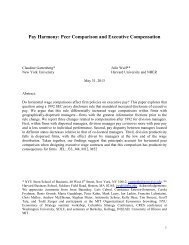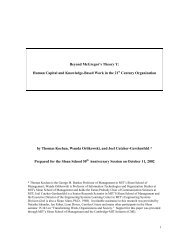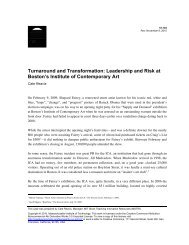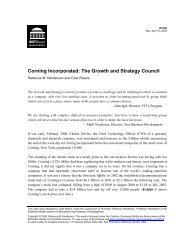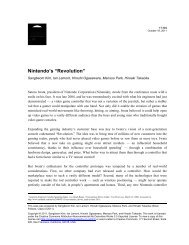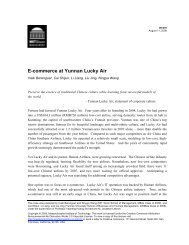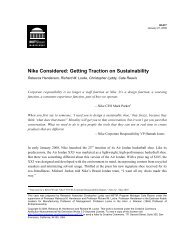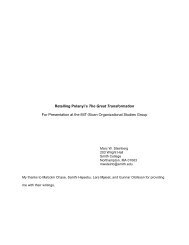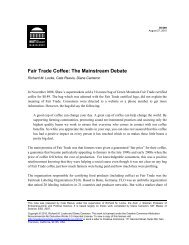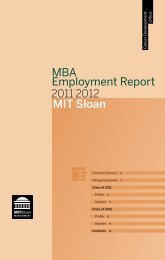Understanding earnings quality - MIT Sloan School of Management
Understanding earnings quality - MIT Sloan School of Management
Understanding earnings quality - MIT Sloan School of Management
You also want an ePaper? Increase the reach of your titles
YUMPU automatically turns print PDFs into web optimized ePapers that Google loves.
how the incentives provided by the potential benefits <strong>of</strong> investor visibility affect accounting choices<br />
and <strong>earnings</strong> <strong>quality</strong>.<br />
3) Only one paper in our database examines whether raising capital in debt markets provides<br />
incentives for accounting choice. More work within public debt markets and on the trade-<strong>of</strong>fs<br />
between debt and equity market incentives would be useful.<br />
5.5.2 Incentives for accounting choice provided by <strong>earnings</strong>-based targets 65<br />
Phillips, Pincus, and Rego (2003) provide evidence that firms manage deferred tax expense<br />
to avoid losses and to avoid <strong>earnings</strong> declines. Rowchowdhury (2006) provides evidence <strong>of</strong> real<br />
<strong>earnings</strong> management to meet various <strong>earnings</strong>-based targets. Das and Zhang (2003) suggest that<br />
firms use working capital accruals to be able to round up EPS to meet analysts’ forecasts, report<br />
positive <strong>earnings</strong>, or to sustain recent performance. Kasznik (1999) finds that firms that provide<br />
management forecasts are more likely to manipulate discretionary accruals to meet their forecasts<br />
when they are concerned with litigation risk or fear a loss <strong>of</strong> reputation accuracy. Barton and Simko<br />
(2002) suggest that incentives to meet targets are an important determinant <strong>of</strong> <strong>earnings</strong> management,<br />
but that opportunities constrain the firm’s choice. They find that constrained firms with already<br />
overstated net asset values are less likely to report small negative <strong>earnings</strong> surprises or large positive<br />
<strong>earnings</strong> surprises and infer that the constrained firms could not manipulate <strong>earnings</strong>.<br />
Earnings targets undoubtedly provide incentives for <strong>earnings</strong> management. The contribution<br />
<strong>of</strong> these studies is that they provide evidence on specific tools that firms use to manage <strong>earnings</strong>.<br />
However, the studies do not provide evidence on how firms choose among <strong>earnings</strong> management<br />
65 Section 4.1.4 also reviews evidence related to benchmarks/targets. In that section, we review studies that use meeting<br />
a target as a proxy for <strong>earnings</strong> <strong>quality</strong>. Those studies test the determinants <strong>of</strong> reporting <strong>earnings</strong> that meet a target or the<br />
consequences <strong>of</strong> doing so. The papers in this section, in contrast, treat meeting a target as the independent variable and<br />
examine the incentives that targets provide for <strong>earnings</strong> management.<br />
112



